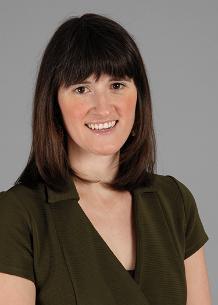Jane Raisch
Visit Jane Raisch's profile on the York Research Database to:
- See a full list of publications
- Browse activities and projects
- Explore connections, collaborators, related work and more
Profile
Biography
Jane Raisch joined the department in 2017 after receiving her Ph.D. in Comparative Literature from the University of California, Berkeley. During her time at Berkeley, she was a fellow at the Townsend Center for the Humanities and an Andrew W. Mellon Fellow in Critical Bibliography at Rare Book School at the University of Virginia. She taught courses on nostalgia, being lost, and visual representations of myth and was chair of the Townsend Center History of the Book Working Group.
Jane specializes in the literature of sixteenth- and seventeenth-century England and Europe and the reception of the classical world. At York, she is a member of the Centre for Renaissance and Early Modern Studies and is currently working on a book project that explores the influence of Greek literature on early modern fiction and the history of scholarship.
Research
Overview
Jane Raisch studies the literature of sixteenth- and seventeenth-century England and the Continent (France and Italy especially), with a particular focus on the reception of Greek and the interconnected histories of fiction and scholarship. Her main areas of interest include: history of the book and material culture; history of scholarship; humanism; Hellenism across periods; the reception of the classics; history of games; Second Sophistic and imperial Greek literature; visual representations of antiquity; the history of translation; and the history of Greek print.
Projects
Jane is currently at work on a book project, tentatively titled Fictions of Scholarship, which explores the impact of Hellenistic, imperial, and early Byzantine Greek literature (which she broadly calls “postclassical”) on the development of early modern fiction in Northern Europe (especially England). The book focuses on the works of Thomas More, Francois Rabelais, Erasmus, Phillip Sidney, Christopher Marlowe, William Shakespeare, and George Chapman.
Other projects include: Patrick Young’s seventeenth-century scholarly editions and the use of red ink; Milton’s anti-Aristotelianism in Samson Agonistes; and the interconnectedness of intellectual, narratological, and physical wandering in Platonic dialogue and romance (ancient and early modern).
She also co-supervises a new digital humanities project, Early Modern Scholar-Printers Online, that looks to digitally highlight the interaction between the intellectual and material practices of scholarship in the sixteenth and seventeenth centuries.
Supervision
Jane would welcome hearing from prospective students with interests in the reception of the classics, the history of scholarship, humanism, history of the book and material culture, comparative approaches to literature, encyclopedic texts, games, and the global Renaissance.


